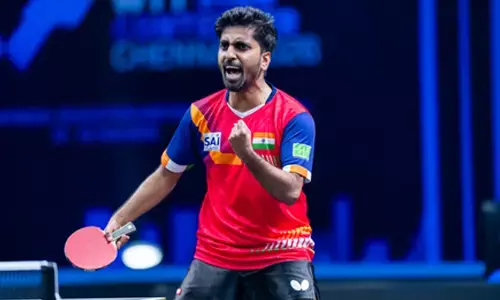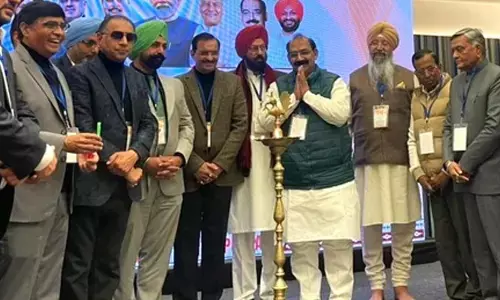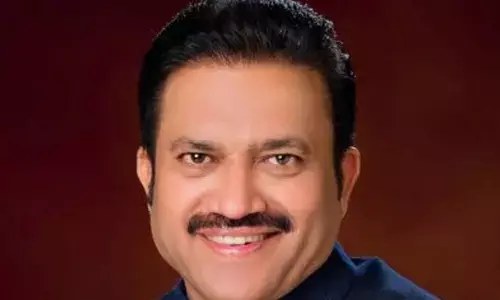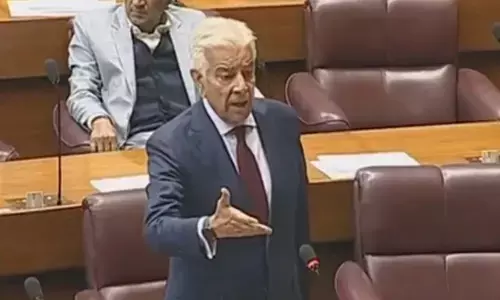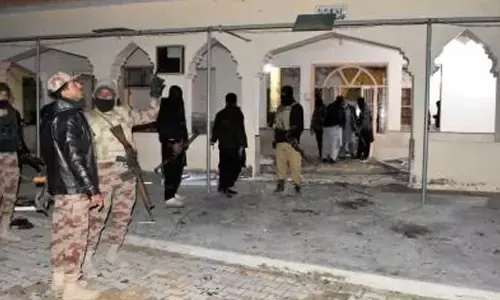A case for India’s first Indian Constitution
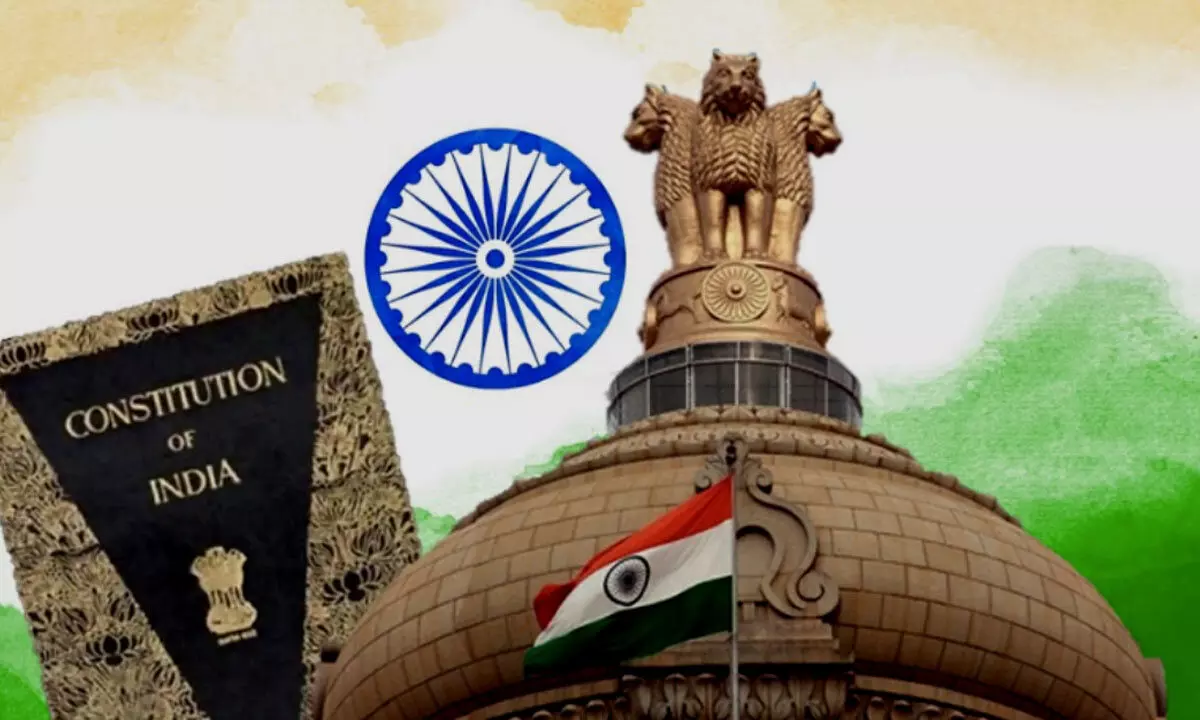
In the recent General Elections, one of the issues that the opposition effectively used to put the ruling party in a defensive position was that if it won overweening majority, it would change the Constitution
In the recent General Elections, one of the issues that the opposition effectively used to put the ruling party in a defensive position was that if it won overweening majority, it would change the Constitution. Indeed, much earlier any talk or a whisper of changing the Constitution was almost made synonymous with being anti-national. Now that the ugly spectacle of what elections in India have come to mean, which seem to get the worst out of all of us, has ended, it is time to look at this issue of constitutional reform with a sense of responsibility and objectivity.
In reality, calls for a new constitution began even before the present Constitution was approved by the Constituent Assembly. Some members,dissatisfied with the process and the product that they were called upon to approve went to the extent of calling it a ‘rotten constitution.’ Since then, this subject was never off the table and voices have been raised advocating radical redrawing. Nehru, as Prime Minister as early as 1951, stated that, “if the Constitution itself comes in our way then surely it is time to change that Constitution.’ His Home Mistier Pant called it ‘rehabilitation.’ Indira Gandhi, too, echoed the same sentiment.
For the record, although everyone vehemently opposes changing the Constitution it has so far been subjected to a staggering 106 amendments. None of them affected what the Supreme Court called Basic Structure; which it ruled (1973) that parliament was not authorised to amend the powers vested in it under Article 368.. It means that even if a ruling party rams through the parliament fundamental changes in the constitution and gets them signed into law by a pliant President, it will assuredly be struck down by the apex court. The real problem is not that; it is precisely the opposite. We need fundamental change and that is impossible as the law stands. And without such a change, India will remain a middling, mediocre country and might not even survive this century. Such are the stakes.
Upfront while paying due obeisance to the founders for putting in so much effort with such dedication, the Constitution they produced was a rush job, drafted in the gruesome shadow of partition. It was probably in recognition of that Nehru called it ‘provisional’ and a ‘basis for further work’ and Patel gave it a life span of 10 years. As starting from ground zero would have been time-consuming, they adopted as basic framework the very document that Nehru called “new charter of slavery – the 1935 Government of India Act passed by the British parliament.” They assumed that our generation would, based on experience gained, prepare a more suitable Constitution. The only serious attempt was initiated by Prime Minister Vajpayee who, recognising the need for ‘deep-going systemic changes in our structures of governance,’ constituted (2000) Justice Venkachaliah Commission. The attempt got aborted primarily because Congress party boycotted, suspecting a ‘hidden agenda.’ Despite the Commission making many useful recommendations, the report was never even placed before Parliament. After that, no one dared do any such thing.
The result is that for 74 years the country is governed by a Constitution which is essentially a conglomerate of randomly selected selective ideas drawn from western constitutions. The President of the Constituent Assembly, Rajendra Prasad, himself admitted it. Its fatal flaw, however, was much seminal: it virtually drew nothing from India’s own rich democratic and republican traditions and paradigms. The overarching principle was local, proximate, bottom-up grassroots governance. Such a paradigm harmonised political plurality, civilisational unity and cultural diversity. The ’ principle’ prevailed almost until the advent of the British Raj. A radical departure was made in the mistaken belief that it was inescapable to transform India into a modern nation-state on the world stage.
Some members of the Constituent Assembly woke up to this grave omission towards the fag-end, but the leadership ruled it out as ‘too late’! Gandhi’s ideas – like self-governing and largely self-sufficient village republics – were rejected as ‘utopian’ and ‘impractical’. So were the ideas of another great Indian M N Roy who was the first to float the idea of a Constituent Assembly for India.
More to the point, creation of a ‘conglomerate’ constitution – in the words of K C Wheare, unitary state with subsidiary federal features rather than a federal state with subsidiary unitary futures – has led to its being riddled with overlapping mandates, contradictions and potential points of conflict. Examples abound. In its desire to put in place a ‘strong’ Centre without, at the same time, not making states weak, it sowed the seeds of the bitter Centre-state relations, which are becoming uglier by day, potentially fanning the flames of secessionism. Another is the growing friction between the executive and the Supreme Court, which has arisen primarily due to the Constitution, making it the ‘ supreme power’ with a virtual Carte Blanche, like in other country. To some extent, such conflicting contingencies are inevitable but to reconcile and harmonise them amicably requires what Ambedkar called ‘constitutional morality’ which is conspicuous by its absence in the work of all constitutional agencies, a part and parcel of the sweeping moral decadence in the society at large.
While the immediate imperative of India’s First Indian Constitution stares us in the face, what is strange, if not surreal, is that almost the only issue on which the entire political class is united is against any such move .What is behind that dubious ‘unanimity’ is short-term expediency and political timidity and fear of stirring up a hornet’s nest. Of course, such a risk exists. But desisting from doing what is imperative will only make the situation worse, with more grave unforeseeable consequences.
The risk can be greatly reduced by instituting a proper, inclusive, broad-based, transparent process and mechanism. That will also ensure that that it will not go in the wrong direction or meet the fate of the Chilean constitution, which began as a people’s movement but was finally rejected by the people. The only constitutional ‘window’ open is through the aegis of the Supreme Court (Article 142), under which it can do whatever it deems necessary to render what the Constitution calls ‘complete justice’ to the people of India. What can be more fitting than this. To induce the Court to do that we need to mobilise the second most potent power in India – the street power. That is the only way to do the ‘Mission Impossible’ and overcome the suffocating inertia, apathy, cynicism and toxicity that is pervasive in public space.
Before closing it is necessary to pit in perspective the role of Dr Ambedkar . In popular esteem, his name is synonymous with the Constitution and he is often hailed as the Father of the our Constitution. There is little doubt his was the commanding voice throughout; he was the chairman of the drafting committee and he was the one who masterfully piloted the draft through the Assembly. But he had to work within the system and in reality bulk of the basic work and drafting was done by a retired ICS officer, B N Rau. Nehru’s imprint was much stronger in terms of its thrust and content. He even initially favored the ‘American form of executive.’ Later Amberdkar (1953) himself rued that ‘I Was a Hack. What I Was Asked to Do, I Did Much Against My Will….I shall be the first person to burn the Constitution’. Why he changed his views were unclear. Crafting a new Constitution will in no way be a disservice to his memory. In more than one sense we are, by prostrating before it and treating it as a ‘holy book,’ being more loyal than the king. Be that all as it may, truth is that neither the British nor the American system suits India. We must fashion our own model suited to our own condition, context , ethos and genre . This is the awesome challenge –and unique opportunity – that ‘we, the people of India’ are called upon to meet.
P.S. For a fuller analysis of this subject please refer to the relevant portions in the book titled ‘India – the Road to Renaissance – a Vision and an Agenda’ by Bhimeswara Challa, Gyan Publications, 2024.
(Writer is a retired IAS
officer of 1958 batch)



